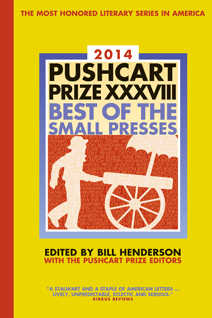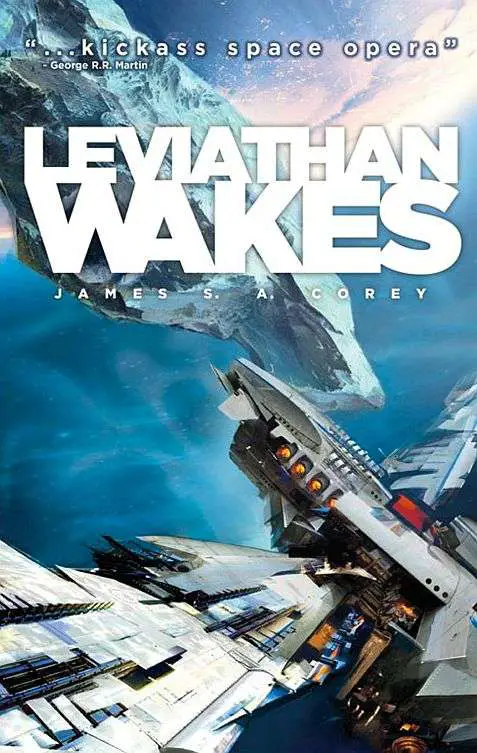
Pushcart Prize 38: Best of the Small Presses, ed. by Bill Henderson
Now in its thirty-eighth year, the Pushcart Prize is the annual selection of important stories, poems essays and memoirs. Culled each year from nominations made by hundreds of publications, the series has become the standard for contemporary prose and poetry—featuring both established and emerging writers. As the web site states: “Since 1976, hundreds of presses and thousands of writers of short stories, poetry and essays have been represented in our annual collections. Each year most of the writers and many of the presses are new to the series. ”
This year’s edition is a hefty 653 pages of winning selections, and includes an introduction by the editor (marking the series’ 40th year), along with contributor’s notes and an index that features Pushcart authors and their works going back to 1976.
The collection makes for rich browsing, the kind in which you can easily (and happily) lose an evening. I found this year’s selection to be especially strong in nonfiction, with a stunning opening memoir by Davy Rothbart, “Human Snowball” (originally in The Paris Review). It’s a love story inside a community story inside the human story of making connections (and not), told in a tour de force of dramatic action. In a more reflective, but equally gripping vein, Andre Dubus III’s memoir of writing a memoir, aptly titled “Writing and Publishing a Memoir,” has none of the writer’s advice you might expect, but rather, centers on the guilt and self-questioning that plagued Dubus in the wake of (certain) public responses to his recent memoir Townies. A third stunning memoir comes from the great Charles Baxter, whose account of a surviving a car accident makes for a haunting read.
Among the poetry selections, I loved finding Matthew Dickman’s “Akhmatova,” a poem I first read in his recent collection Mayakovsky’s Revolver. Like so much of Dickman’s work, the tone is dark, laden with a corporeal longing that arises from a razor-like use of language:
…I had been reading about the dark windows
Akhmatova looked through
to see if her son had been let out of prison. As I walked around
the shallow pools
feeling like I had done a good job being myself
I heard my third grade teacher
whisper into my ear
what’s wrong with you? You want to be stupid your whole life?
Then there was Ocean Vuong’s powerful “Self-Portrait with Exit Wounds. ” Vuong is a writer new to me, but the poem is unforgettable, a remembrance of Vietnam, a place “beyond the jungle’s lucent haze/the rot and shine of a city trying to forget.”
Honestly, the fiction was my least favorite of this volume—though it might be the wonderfully nonfiction feel that Robert Long Foreman brings to “Cadiz, Missouri,” that made it stand out for me. He begins with context, differentiating Cadiz, Spain from its Missouri counterpart. In the opening lines the narrator notes how the locals pronounce the town’s name like “callous,” in a way that “hangs limp from their tongues”:
I cannot imagine why America’s Cadiz was built where it was. It was not built on the river, or the Interstate. There were no trade routes running through it. You couldn’t get a decent sandwich there, at least not o the Saturday I spent exploring it with Charlie, soon after we moved nearby. There was never a reason to go back after the first trip.
As it is each year, it’s a collection that makes for essential reading. As Henderson, one of the writing world’s most avid supporters, says in his introduction, “Let me state flat out, for me writing is a form of worship. Not the kind of worship you do in church perhaps, maybe it’s even dark, bleak or anti-religious. Literature should be akin to prayer. To write in order to win a prize, including a Pushcart, is my idea of blasphemy.”
Read more about the Pushcart Prize here.
—Lauren Alwan

